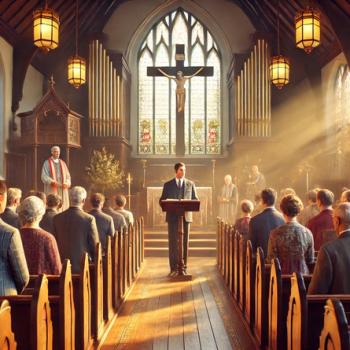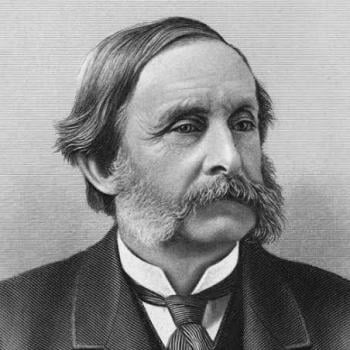For starters, Lewis insists, "nothing is more needed than a roar of old-fashioned laughter" (ibid., 91). He writes, sexual jokes are universal and sensible people know that there is something inherently comic about sexual activity. Maintaining an attitude of play in the game of love can protect us from the dark spirituality of making a religion out of love. Only in the context of a healthy sense of humor about sexual activity within the proper boundary of wedded love can we begin to consider the deeply serious spirituality of sex.
Lewis names four levels of seriousness: 1) the theological, as "the mystical image of the union between God and Man"; 2) the sub-Christian, as our participation in "the natural forces of life and fertility"; 3) the moral, in terms of the responsibilities of parenthood and the future of the human race; ad 4) the emotional, for the participants (ibid., 91).
According to Lewis, the Christian needs to regard sexuality with a saving laughter that deepens into a profound understanding of its intrinsic spirituality. What we think and do cannot be separated from who we are. As beloved people made in the image of God, we are to regard our sexuality as part of the precious treasure we have been designed to be. What we do with our sexuality has everything to do with how we regard, or fail to regard, the Lord God and therefore ourselves in relation to him.
One footnote on what requires a much greater response. We have the tendency to equate sexuality not only with identity and personal fulfillment but with sexual activity itself. A dangerous equation. What does this say to virgins, the celibate, the ill, and the widowed? In the Christian worldview, however, sex is far greater than sexual activity. We are sexual beings, uniquely designed, and we are neither reducible to our gender (Galatians 3:28), nor do we lose our sexuality through celibacy. In Lewis's novel That Hideous Strength, "the unmarried members of St. Anne's, Ransom, Grace Ironwood, and MacPhee, are just as much part of this great cosmic dance of divine love. All members submit their bodies or lives to the dance" (Hilder, The Gender Dance, 158).




